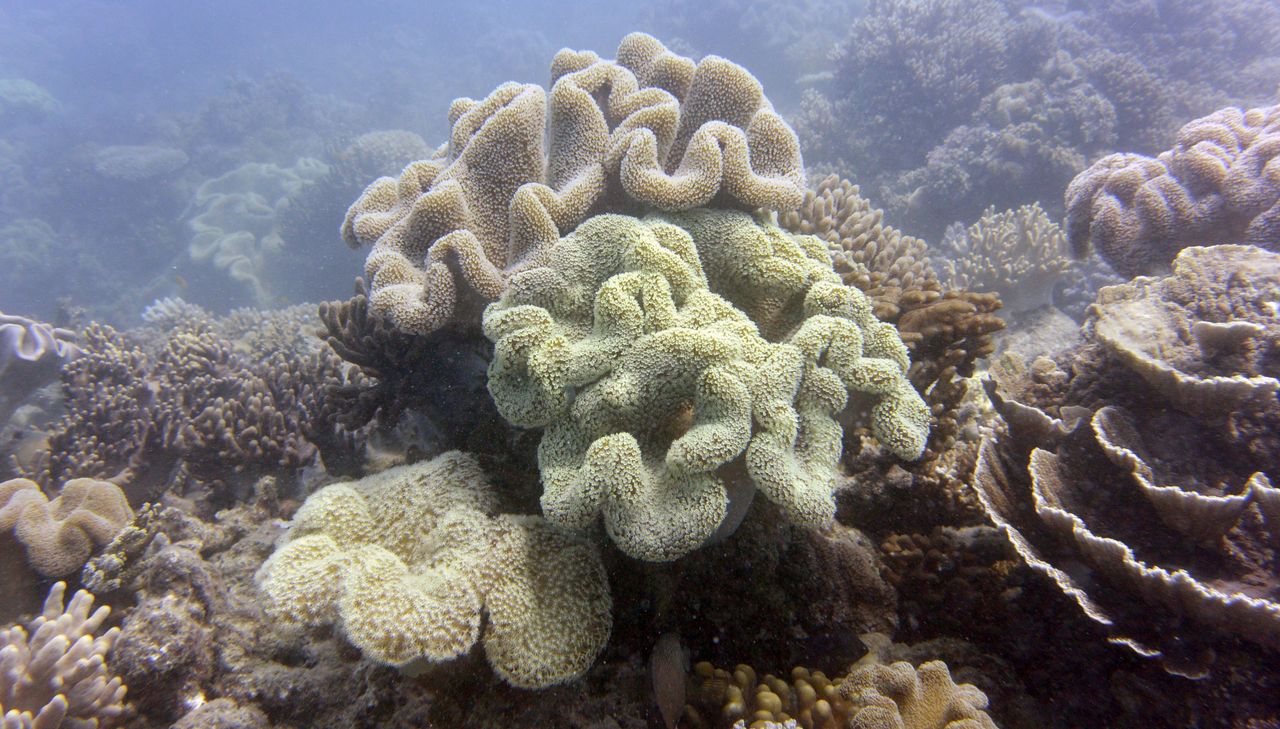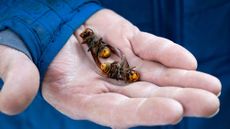Scientists report 'unprecedented' bleaching event in the Great Barrier Reef


After a summer of extreme heat in Australia, scientists at Australia's James Cook University and the Great Barrier Reef Marine Park Authority have reported the third bleaching event in the Great Barrier Reef in five years.
"That is unprecedented," Mark Eakin, coordinator for the National Oceanic and Atmospheric Administration's Coral Reef Watch program, told The Washington Post.
It's clear that major bleaching events can now be caused by climate change, Eakin said, noting that this year's bleaching did not coincide with El Niño, like several in the past did.
Subscribe to The Week
Escape your echo chamber. Get the facts behind the news, plus analysis from multiple perspectives.

Sign up for The Week's Free Newsletters
From our morning news briefing to a weekly Good News Newsletter, get the best of The Week delivered directly to your inbox.
From our morning news briefing to a weekly Good News Newsletter, get the best of The Week delivered directly to your inbox.
Bleaching is the result of coral being exposed to warm water for too long, leaving it under more stress and "subject to mortality," according to the National Oceanic and Atmospheric Administration. Coral reefs "support more species per unit area than any other marine environment," and their biodiversity is "considered key to finding new medicines for the 21st century," per the NOAA.
The intensity of this year's bleaching falls short of that of 2016, but is more expansive. In 2016, the southern reefs were "a rare bright spot," Kim Cobb, a coral reef and climate scientist at the Georgia Institute of Technology, told the Post. This year, corals from the north to south have been negatively affected.
Scientists agreed this indicates the reef is growing closer to annual bleaching events. Read more at The Washington Post.
Sign up for Today's Best Articles in your inbox
A free daily email with the biggest news stories of the day – and the best features from TheWeek.com
Taylor Watson is audience engagement editor for TheWeek.com and a former editorial assistant. She graduated from Syracuse University, with a major in magazine journalism and minors in food studies and nutrition. Taylor has previously written for Runner's World, Vice, and more.
-
 Decrepit train stations across the US are being revitalized
Decrepit train stations across the US are being revitalizedUnder the Radar These buildings function as hotels, restaurants and even museums
By Justin Klawans, The Week US Published
-
 Crossword: January 30, 2025
Crossword: January 30, 2025The Week's daily crossword
By The Week Staff Published
-
 Sudoku medium: January 30, 2025
Sudoku medium: January 30, 2025The Week's daily medium sudoku puzzle
By The Week Staff Published
-
 Europe records big leap in renewable energy
Europe records big leap in renewable energySpeed Read Solar power overtook coal for the first time
By Peter Weber, The Week US Published
-
 Blue Origin conducts 1st test flight of massive rocket
Blue Origin conducts 1st test flight of massive rocketSpeed Read The Jeff Bezos-founded space company conducted a mostly successful test flight of its 320-foot-tall New Glenn rocket
By Peter Weber, The Week US Published
-
 US won its war on 'murder hornets,' officials say
US won its war on 'murder hornets,' officials saySpeed Read The announcement comes five years after the hornets were first spotted in the US
By Peter Weber, The Week US Published
-
 Dark energy data suggest Einstein was right
Dark energy data suggest Einstein was rightSpeed Read Albert Einstein's 1915 theory of general relativity has been proven correct, according to data collected by the Dark Energy Spectroscopic Instrument
By Peter Weber, The Week US Published
-
 New DNA tests of Pompeii dead upend popular stories
New DNA tests of Pompeii dead upend popular storiesSpeed Read An analysis of skeletal remains reveals that some Mount Vesuvius victims have been wrongly identified
By Peter Weber, The Week US Published
-
 NASA's Europa Clipper blasts off, seeking an ocean
NASA's Europa Clipper blasts off, seeking an oceanSpeed Read The ship is headed toward Jupiter on a yearslong journey
By Peter Weber, The Week US Published
-
 Detailed map of fly's brain holds clues to human mind
Detailed map of fly's brain holds clues to human mindSpeed Read This remarkable fruit fly brain analysis will aid in future human brain research
By Peter Weber, The Week US Published
-
 Blind people will listen to next week's total eclipse
Blind people will listen to next week's total eclipseSpeed Read While they can't see the event, they can hear it with a device that translates the sky's brightness into music
By Peter Weber, The Week US Published